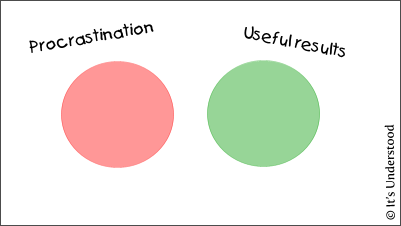“Procrastination is the thief of time.” – Edward Young (1683-1765)
We all do it. But for some, the practice of procrastination – delay without good reason, can become a chronic habit.
Anne Lamott in Bird by Bird , tells this poignant story of the consequences of delay:
“Thirty years ago my older brother, who was ten years old at the time, was trying to get a report on birds written that he’d had three months to write. It was due the next day. We were out at our family cabin in Bolinas, and he was at the kitchen table close to tears, surrounded by binder paper and pencils and unopened books on birds, immobilized by the hugeness of the task ahead. Then my father sat down beside him, put his arm around my brother’s shoulder, and said, “Bird by bird, buddy. Just take it bird by bird.”
We now know that procrastinaton isn’t a time management issue. There are powerful cognitive issues at play and our brains are not being our friends. But like any learned behaviour, we can displace it with another learned behaviour.
The irony of procrastination is that we succumb to it to feel better (in the short term) but the result is usually the opposite. Annoyance, stress and guilt quickly erode the fleeting sense of satisfaction provided by the distraction of the choice we make in the present moment. Procrastination simply doesn’t make us feel great. This distress seldom prevents the development of a procrastination habit.
A good place to begin
Two inspirational resources
If Google search results are any indication, I’m convinced interest in conquering the scourge of procrastination ranks with achieving world peace. But among the overwhelming options here are two resources that I’ve found enaging and useful:
Dr. Timothy Pychyl has spent his career exploring procrastination. He makes his research accessible to those who need practical guidance through his blogging at Psychology Today and now, in an excellent short ebook called The Procrastinators Digest. If you want to understand and counter procrastination tendencies I think it’s the best $2.99 you could ever spend.
Dr. Piers Steel conducted a meta-survey of formal academic publications that analysed over 800 scholarly papers on procrastination. This effort, along with his own research, has provided the insight he shares in his new book The Procrastination Equation (available December 28, 2010)
In it Steel debunks long-standing theories (and myths) regarding procrastination and proposes a new explanation that provides guidance towards overcoming our tendencies to delay. Based on previews and testimonials alone, this is not to be missed if procrastination is on your mind.
If you’re keen to see where you rank in Steel’s procrastination continuum and are willing to further his research you can take his survey.

